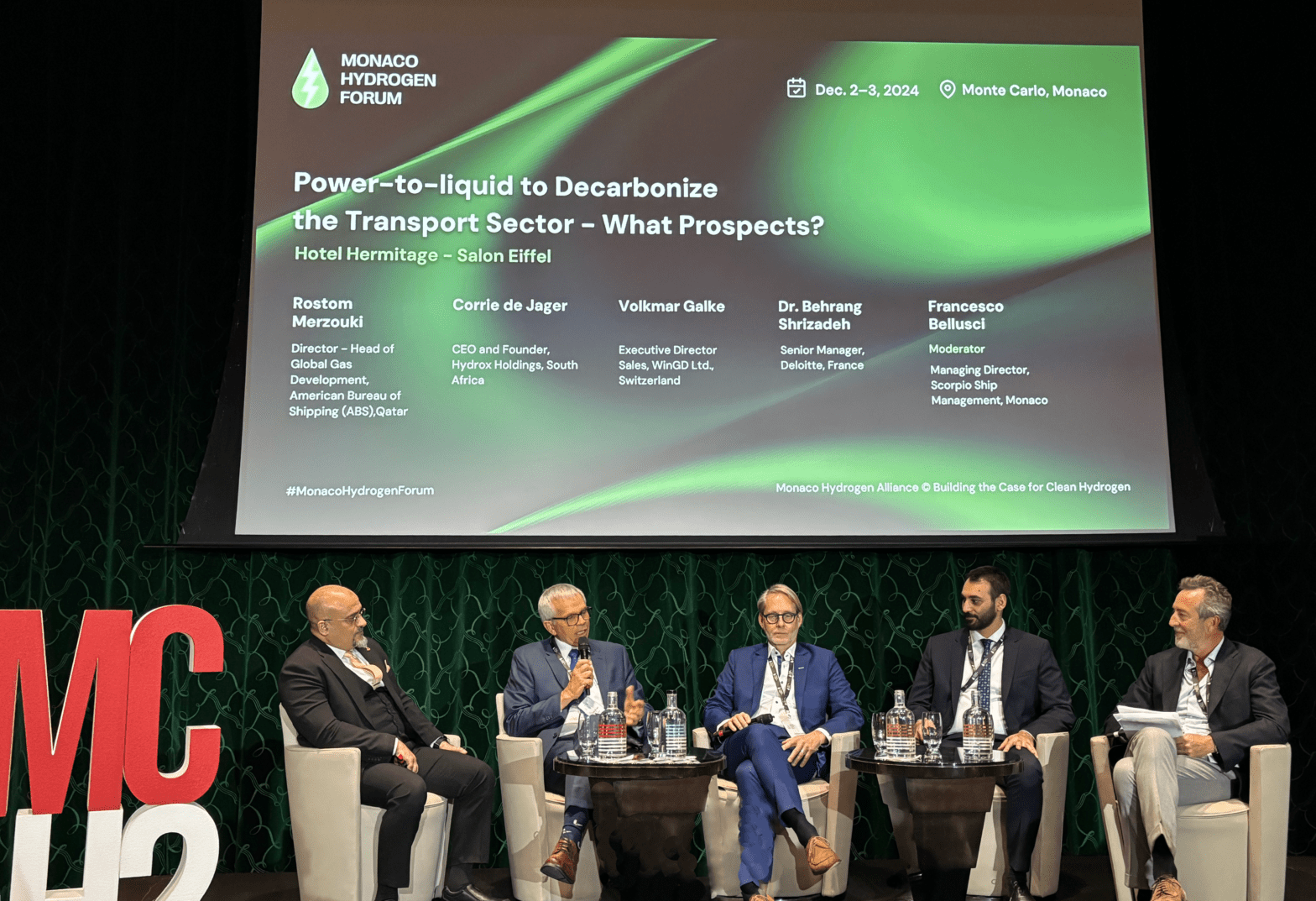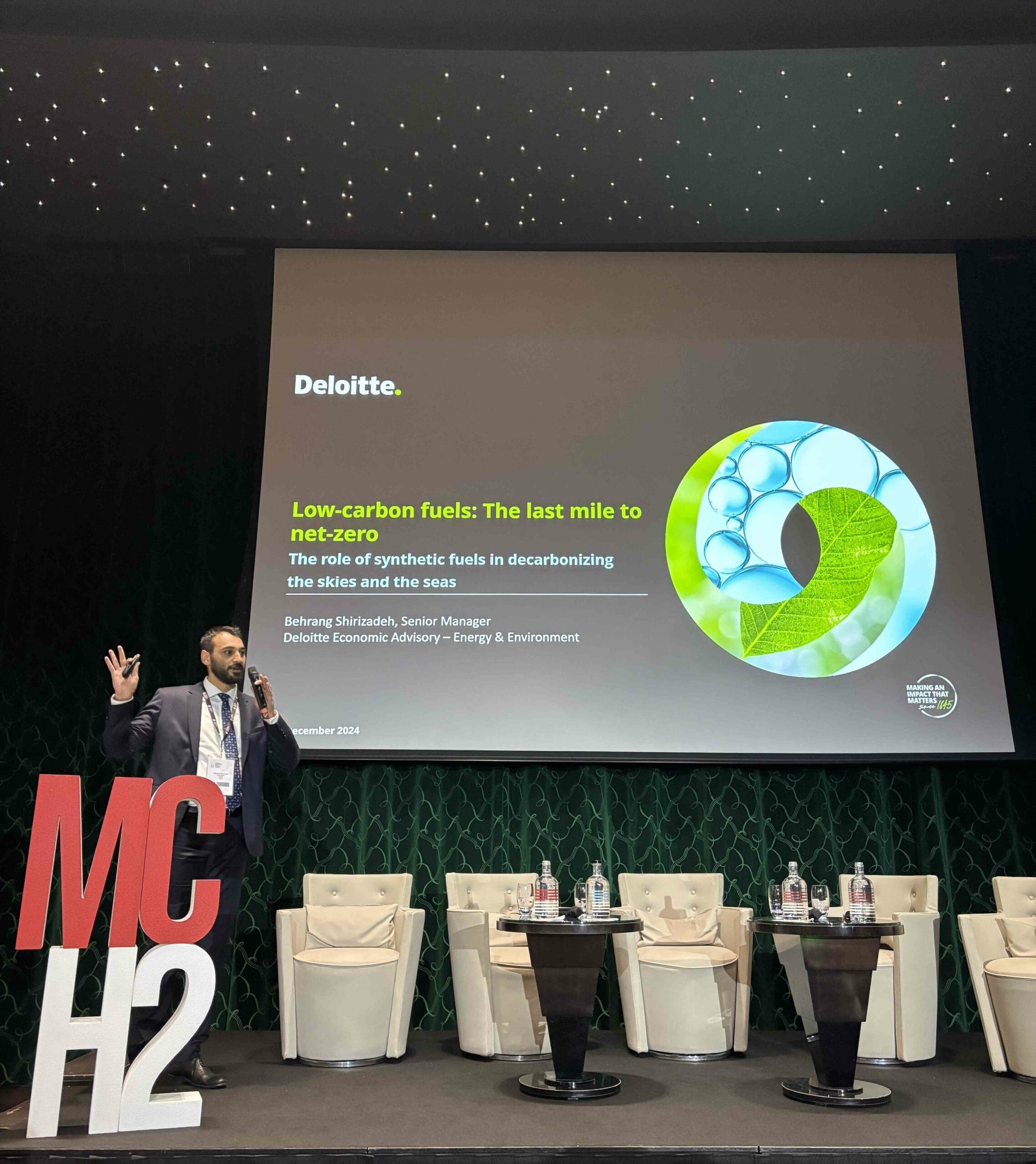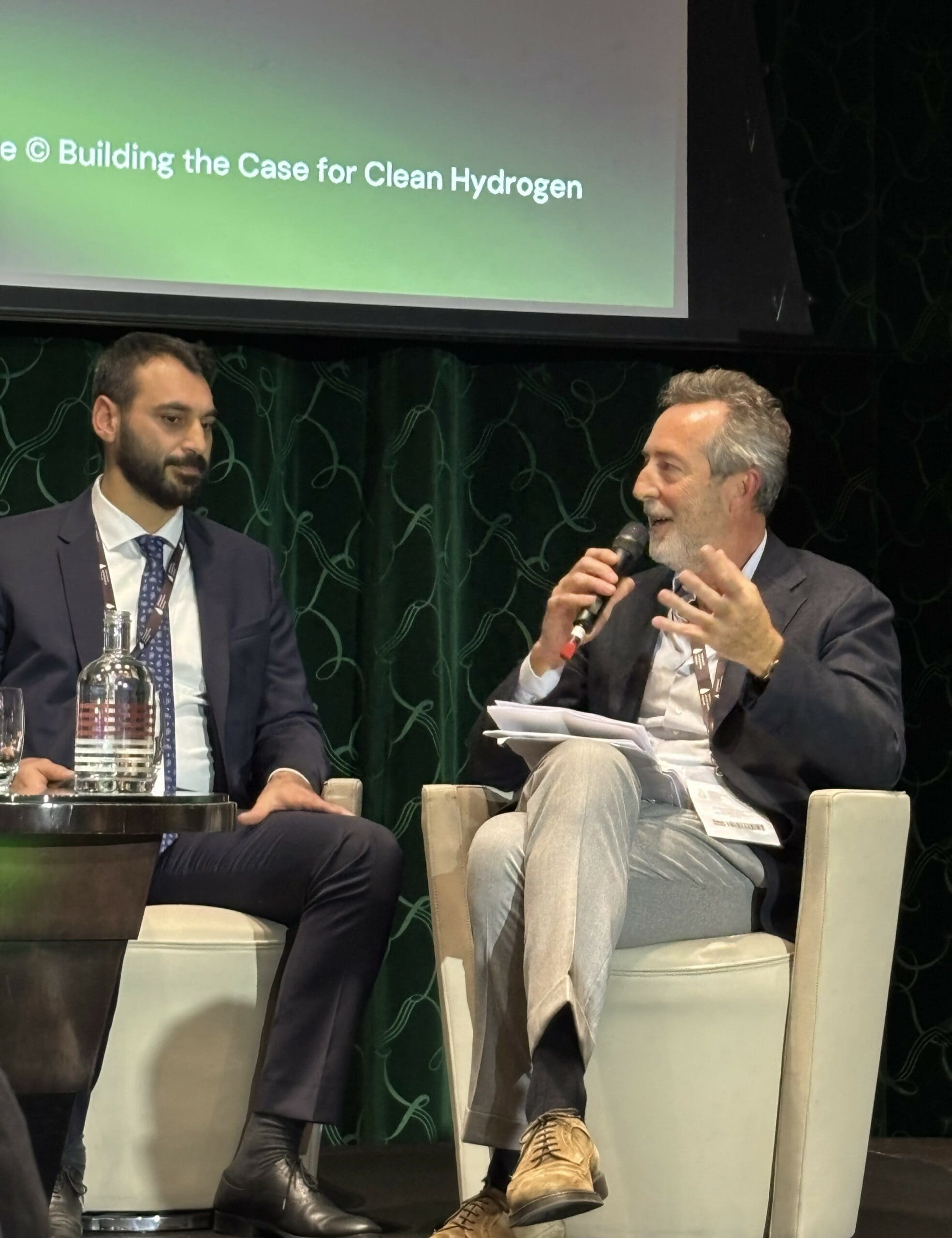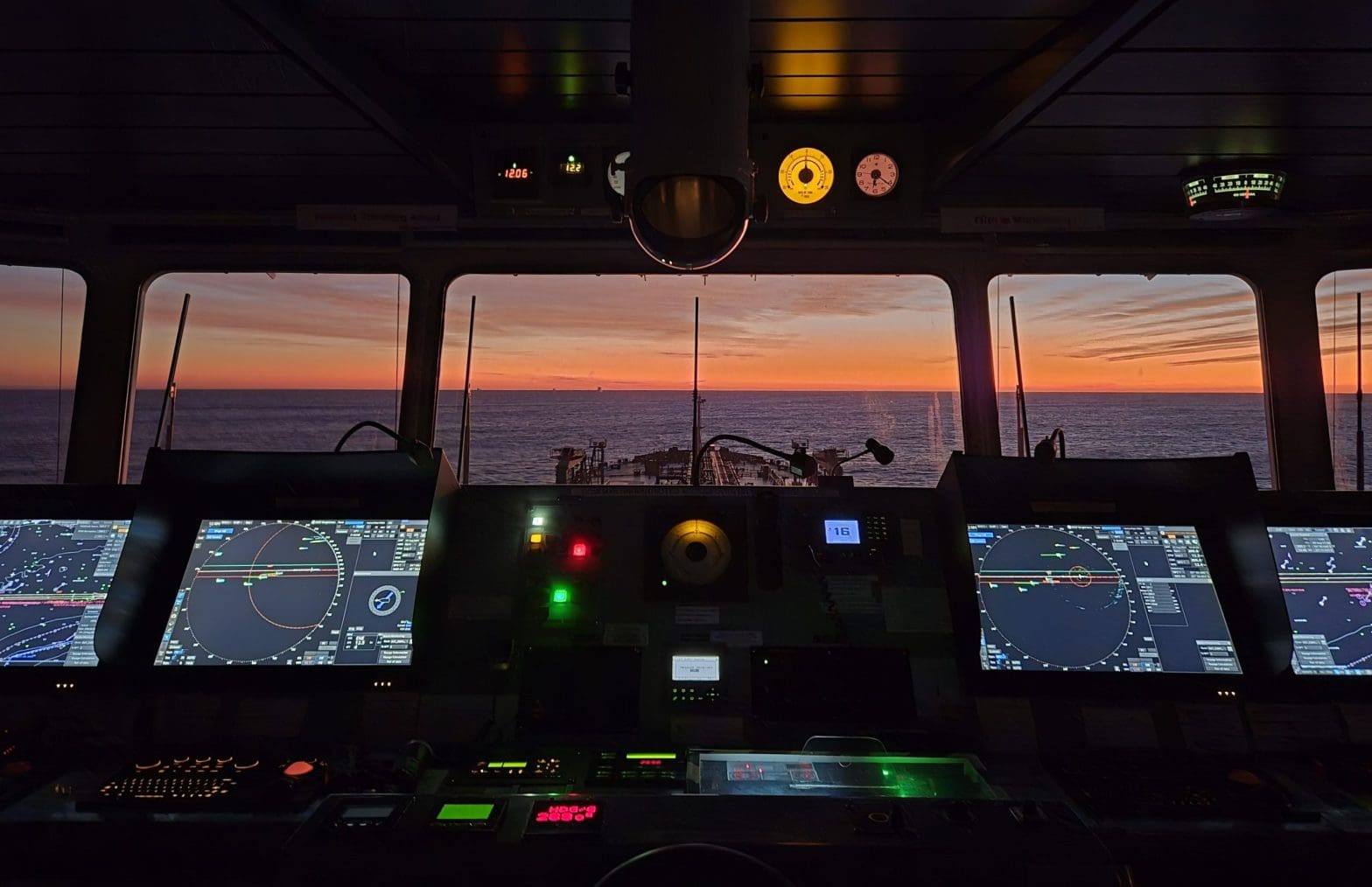Monaco Hydrogen Alliance – Scorpio Moderates Panel on Decarbonization

From 2 – 3 December, the Monaco Hydrogen Alliance forum was held at the Hermitage Hotel in Monte-Carlo. Attracting a mix of shipping owners, scientists, fuel companies, and innovative hydrogen-based start-ups, the annual forum provides a meeting of minds and round-table discussions about the latest trends, technologies, and challenges around finding clean energy solutions.

On Tuesday, 3 December, an important and fascinating discussion was held at the panel “Power-to-Liquid to Decarbonize the Transport Sector – What Prospects?”. Opening the panel was a presentation from Dr. Behrang Shirizadeh, Senior Manager of Deloitte France, which took a dive into the biggest obstacles reaching Net-Zero and he gave his own thoughts on how the transport industry working together is the best way forward. Describing the ‘green fuel’ market as “far from take-off”, data shows that of 230 synthetic fuel production projects announced in 2024, only 15% made it to the final investment stage. Dr. Shirizadeh believes that the large-scale airline and shipping companies are the best to push the decarbonization change at market level as they are the one with fewer solutions in hand!
Introducing the panel of experts was Scorpio’s Managing Director, Francesco Bellusci, who moderated the discussion. He did an excellent job of asking key questions to the panelists, each of whom brought their own unique expertise to the stage.
Volkmar Galke, Executive Sales Director of WinGD Ltd., gave impressive figures from his company’s results with ammonia-powered vessels. Challenging the view that large-scale vessels aren’t yet capable of running on alternative fuels, he shared that WinGD Ltd. is the 2-stroke engine builder with most advanced agenda, with their first industrial test foreseen in Q2 2025. He added that there are already 58 signed contracts to build ammonia-powered vessels around the world. The most important thing, Mr. Galke stressed, is that collaboration is key to moving forward and ship owners must be part of the equation.
Corrie de Jager, CEO and Founder of Hydrox Holdings in South Africa has developed the Divergent-Electrode-Flow-Through (DEFTTM), an electrolysis technology to create more efficient Hydrogen production. He brought an unusual perspective of living in and travelling throughout Africa, and seeing the sheer number of towns and villages where each household lives exclusively on diesel generators. He pointed out that while we need the large-scale companies to push the change, we must have small, inexpensive ways of producing clean energy at the individual consumer level.
Rostom Merzouki, Director and Head of Global Gas Development at the American Bureau of Shipping in Qatar, explained the challenges of working with and transporting hydrogen and ammonia. According to him, the best way to utilize Hydrogen power is to burn it at the source because the energy required to keep Hydrogen stable in transport is greater than the energy contained in it.
This is one of the most important and most challenging aspects of finding the right ‘clean’ fuel for the future—looking at the entire supply chain, to make sure the fuel is clean at all stages. In the electric car industry, for example, they have been able to achieve zero emission from the car, however, the manufacture and disposal of the car batteries are highly problematic. No longer an acceptable allowance for future fuels, the life cycle assessment of fuel LCA ‘from well to wake’ will be the standard. Once implemented at IMO level, the industry will ensure a comprehensive approach to the whole fuel life emission impact.
Who Pays?

For the final question to the panel, Mr. Bellusci asked who will be paying for this synthetic fuel transition. Another not-so-simple answer. Certainly, there will need to be a variety of funding programs, including government subsidies, tax credits, private-sector investment, consumer demand, etc. A solution that recalled Dr. Shirizadeh’s initial presentation, the only way to move forward will be full cooperation between governments, policy makers, the shipping industry, and other key players. Regardless of the road to funding, the panelists agreed that all proposed scenarios, would likely cause increased inflation for the consumer, however, the amount would be negligible when broken down across the consumer goods market. They don’t expect more than a percentage point or two of increase, a small price to pay if it means we can save the planet!
In the race to meet the ambitious and looming Net-Zero target for 2050, we are still a long way from consensus on clean synthetics fuels. However, the industry is committed to finding a cost-effective solution, and it is in forums such as the Monaco Hydrogen Alliance that the discussions are happening. For sure, the next few years will be interesting as technology develops.
